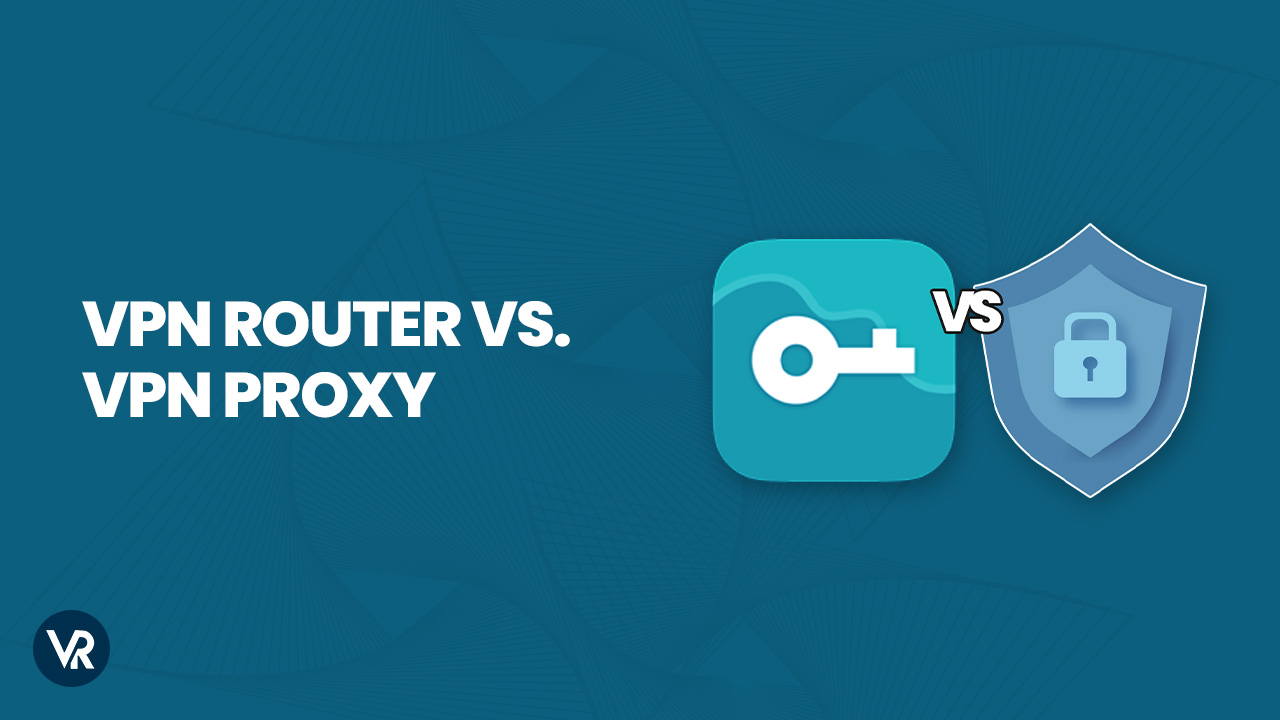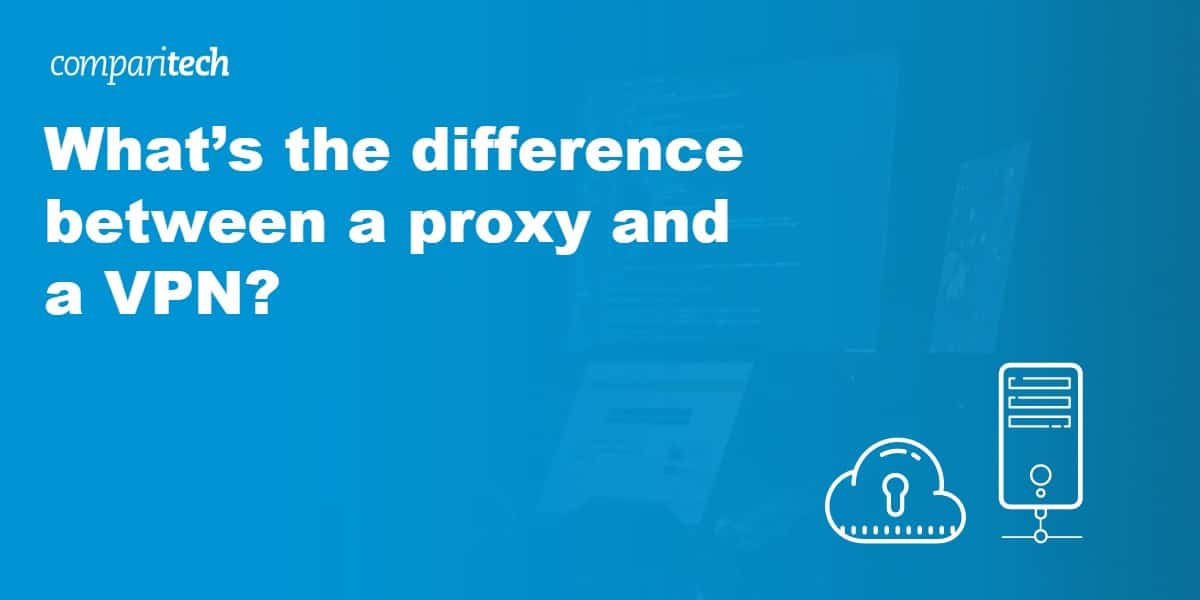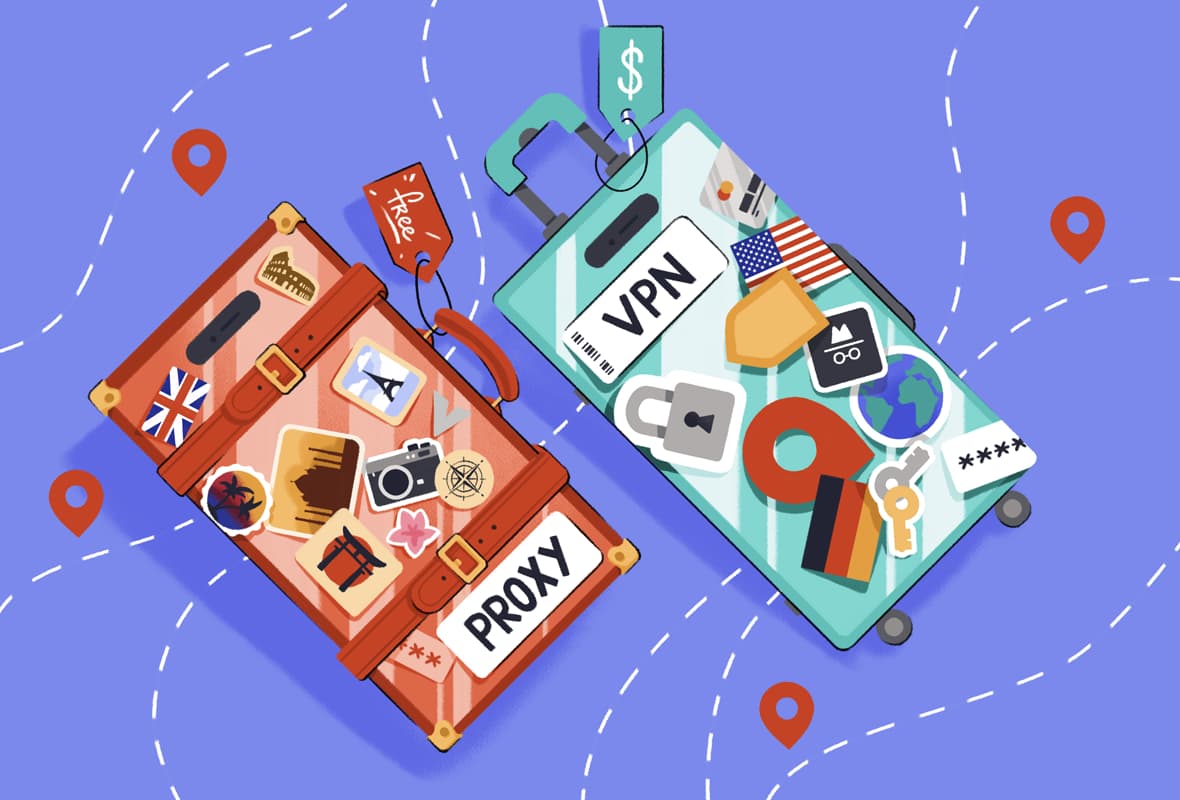Featured
Table of Contents
Proxies Vs Vpns: What's Better In 2023
A proxy server will conceal your IP address from sites and services that you visit. Somebody may still recognize your computer system or device with fingerprinting, but that's unassociated to the proxy. Yes, both proxy servers and VPNs conceal your IP address from sites and services that you visit and utilize.
Securing your web traffic isn't simply a matter of accessing geo-blocked streaming content. It could also have much deeper implications into the freedom to gather or share information that's not accessible in somebody's nation. Do you use a VPN to improve your privacy and security when searching the web?
It is a mechanism of employing encryption, authentication and stability protection so that we can utilize public network as personal network. It enables users to from another location access a personal network.

Privacy: VPN provides personal privacy by masking the user's identity and place, making it hard for advertisers and trackers to keep an eye on user habits. Access to geo-restricted content: VPN allows users to gain access to content that is obstructed or limited in their area by connecting to a server in another location. Versatility: VPN is flexible and can be used with a variety of devices and running systems.
What Are The Main Differences Between Proxy Servers & ...
Slower speeds: VPN can trigger slower web speeds due to the overhead connected with encryption and decryption of information. Greater expense: Some VPN services require a subscription cost, which can be a barrier to entry for some users. Risk of malware: Some complimentary VPN services might bring malware or other security risks, so it is essential to pick a trusted service provider.

Privacy: Proxy provides privacy by hiding the user's IP address, making it challenging for sites and advertisers to track user behavior. Access to geo-restricted content: Proxy permits users to gain access to content that is blocked or limited in their region by linking to a server in another place. Cost-efficient: Proxy is generally totally free or affordable, making it accessible to many users.
A proxy server is a middleman in between a user and web server. When web activity goes through this remote server, a user's IP address is replaced with the IP supplied by the proxy server. A proxy server can do a lot more than simply hide your IP address. It could be configured to function as a firewall and an internet connection filter for blocking malware injection attempts.Learn more aboutProxy Servers. A forward proxy service.

monitors internal network traffic. This proxy is situated at the edge of an internal network, in between internal users and the web. Forward proxies describe specified administrative controls to either authorize or reject connection requests in between users and the internet. Forward proxies use extremely fundamental IP address security and can not resolve complex user gain access to requirements. All outbound traffic is filtered through a reverse proxy which then controls each application server request in accordance with policy management standards. Reverse proxiess can be utilized for: Protecting application connections through TCP three-way handshakes, Authorizing or blocking user connection requests, Linking users to an origin server A transparent proxy server works by clandestinely filtering online activity without notifying users. But this smooth experience comes with some severe consequences. Transparent proxies are potential
Vpn Vs Proxy: Detailed Comparison
attack vectors for SYN-flood-denial-of-service attacks. It is very important to comprehend that transparent proxies do not conceal a user's identity from targeted web servers. A user's info, including their IP address, is provided in each connection request header. Transparent proxies can be used for: Removing unwanted material as specified by proxy policies, Keeping an eye on traffic within a private network, Requiring user authentication when joining a network Anonymous proxies have almost the opposite function of transparent proxies. Due to the fact that VPNs conceal a user's IP address and provide end-to-end file encryption, it's the perfect service for reducing malicious sleuthing inside personal networks. When considering a more secure internet browsing experience, both proxy servers and VPNs are normally at the top of the recommendation list. Only VPN connections totally encrypt network traffic. When SSL certificates are used, web traffic is vulnerable to hacker interception through a kind of cyberattack called SSL stripping. That being stated, because
both VPNs and proxy servers hide a user's IP address and therefore the identity of their gadget, both alternatives could secure users from DDo, S attacks and Strength attacks.For the best level of delicate information security when searching the web, it's best to stay away from proxy servers (especially complimentary proxy servers )and settle for a VPN service by a trusted VPN service provider.Did you know that almost 88 %of Americans know private networks? If you're part of this statistic, then you're most likely attempting to decide what type of online security to utilize. Proxies and VPNs can both be used to conceal your IP address and assistyou gain access to online material securely. Keep checking out to learn about the differences between a proxy vs. VPN and which one could be best for your online security requirements. Generally when you browse the web, your computer connects to a site straight and starts downloading the pages for you to read. This procedure is easy anddirect. The proxy server sends the request to the target website, downloads the appropriate info and then passes it back to you. Why would you select to utilize a proxy server? There are a number of reasons: You want to a site anonymously: All traffic appears to come from the proxy server, notyour computer. Since VPNs are a paid service, VPN connections tend to be more reliable than proxy servers. With many users and an absence of facilities or assistance, proxy server connections can drop more frequently. Now it's time to choose which server is better for you: proxy or VPN. We've assembled all the advantages and downsides of each one below. However, a good VPN will need a paid membership for usage. Only worth it if you utilize it often: If you don't prepare to utilize your VPN every day, it's most likely much better to just use a proxy server for when you need one-time protection. Why you ought to pick a proxy server: No payment needed: You do not need to pay a membership cost for a proxyserver. Therefore, any other web traffic can still be seen by potential hackers or your internet company. If you're looking for a security service for one-time use and don't care as much about who sees your web activity, a proxy server is most likely your finest choice. Nevertheless, if you're trying to find a sure-fire defense service that will keep all your traffic concealed, a VPN is your finest choice. A VPN is much better than a proxy server for several factors. VPNs encrypt all of your internet traffic, while a proxy server just encrypts the IP address of one web app or website. Another benefit of paid VPNs is that your data can't be offered to 3rd parties for advertising purposes, whereas with a totally free proxy server, there's a high chance your traffic data will be offered. However, your VPN will secure your data, which a proxy server can't do. If you have a VPN, adding a proxy server is not required. Proxy servers are safe and helpful for concealing your IP address and protecting against hackers. Your information might potentially be sold to third-party advertisers if you utilize a proxy server. Start with the Panda VPN now for more help and recommendations about remaining safe online, take an appearance at the practical ideas in the Panda Security blog site.
Latest Posts
The Best Business Vpn Services 2023
Best Vpn Solution For Your Business
Vpn Stopped Working: Here Are 4 Quick Tips To Get It Back